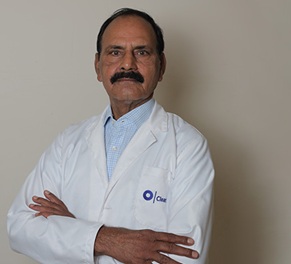Laser Surgery for Fistula - Procedure, Benefits, Recovery
Dr. Aman Priya Khanna

Treatment Duration
10 Minutes
------ To ------15 Minutes
Treatment Cost
₹ 32,000
------ To ------₹ 70,000

Table of Contents
- What is Laser Fistula Surgery?
- Who Needs Laser Fistula Surgery?
- Benefits of Laser Fistula Surgery
- Protocol Before and On the Day of Laser Fistula Surgery
- Laser Fistula Surgery Procedure
- Expectations After Laser Fistula Surgery
- Risks and Complications of Laser Fistula Surgery
- Risks of Delay in Laser Fistula Surgery
- Cost of Laser Fistula Surgery
- Takeaway
There has been growing interest in using laser fistula treatment in the past ten years. According to Mendes, conventional surgical approaches have been linked to incontinence rates ranging from 15% to 25%.
In contrast, laser fistula surgery is associated with comparatively lower recurrence rates. Read to learn about laser treatment for fistula, its benefits, procedure, complications, cost, etc.
Procedure Name | Laser Fistula Surgery |
Alternative Name | Fistula-tract Laser Closure |
Conditions Treated | Simple, Complex and Recurrent fistula |
Benefits of the Procedure | Minimally invasive, Quick recovery, High success rate |
Treated by | General Surgeon |
You can check Laser Surgery for Fistula Cost here.
What is Laser Fistula Surgery?
An anal fistula is an anorectal condition where an abnormal tunnel forms, connecting the anal canal to the skin around the anus. It cannot be resolved with antibiotics. Surgical treatment is necessary to repair the anorectal tissue to remove or close the fistula channel.
Laser fistula surgery, a minimally invasive procedure for treating fistulas, involves inserting a laser fibre into the fistula from the outside and guiding it through to the opening inside the rectum.
The laser causes the surrounding tissue to shrink. The channel is sealed with a laser. The internal opening is then closed using a suture and, in some cases, a skin flap.
Anatomy and Physiology of Anal Region
The anal region, also known as the anorectal region, is an area of the body involved in passing stool and controlling bowel movements. The anatomy of the anal region is as follows:
Anus: This is the external opening at the end of the digestive tract, where stool is expelled from the body. It is surrounded by muscles that aid in passing stool.
Anal Canal: This short passage extends from the anus to the rectum, lined with a mucous membrane. An anal fistula can occur in this region. Two types of sphincters surround it:
Internal Anal Sphincter: This involuntary smooth muscle remains contracted to control bowel movements and relaxes during defecation.
External Anal Sphincter: These voluntary muscles surround the internal sphincter.
Rectum: The last part of the large intestine temporarily stores stool before defecating.
Anal Sinuses: Small pockets in the anal canal called anal sinuses become irritated or infected, leading to conditions like anal fistulas or abscesses.
Laser Surgery for Fistula Videos by HexaHealth
Expert Doctors (10)
NABH Accredited Hospitals (10)
Laser Surgery for Fistula Success Stories


Who Needs Laser Fistula Surgery?
Laser surgery may be preferred when there is a need to preserve anal sphincter function. This helps in maintaining bowel continence. The indications of laser surgery treatment for fistula are:
Complex Fistulas: Laser surgery may be recommended for complex anal fistula, especially those with multiple tracts or branches.
Recurrence of Fistulas: In cases where traditional surgical approaches have resulted in fistula recurrence, laser surgery might be considered for its precision and effectiveness.
Inflammatory Bowel Disease (IBD) Patients: For individuals with underlying inflammatory bowel diseases like Crohn's disease, laser surgery might be considered a suitable option for fistula treatment.
Benefits of Laser Fistula Surgery
Fistulas located in deep or narrow tracts may be treated with laser surgery because they can precisely reach difficult areas. Laser fistula surgery provides benefits such as:
Minimally Invasive: Laser surgery is often chosen for its minimally invasive nature, reducing the need for extensive incisions. This can lead to quicker recovery and less postoperative pain.
Quick Healing: Surgery via laser treatment minimises tissue damage compared to traditional procedures. It potentially promotes faster healing and reduces the risk of complications.
High Success Rates: Studies suggest that laser surgery for fistula treatment has shown promising results in terms of both short-term and long-term success rates.
Protocol Before and On the Day of Laser Fistula Surgery
Individuals often have inquiries about the process before and on the day of the laser fistula treatment. Adequate preparation beforehand ensures that the patient remains well-informed and aware of what to expect.
Protocol Before Laser Fistula Surgery
Prior to laser fistula surgery, the medical team follows guidelines. It ensures the safety of the patient throughout the process.
Parameters | Prerequisites |
Pre-op Assessment (Physical) | Routine Blood Tests |
Risk Evaluation |
|
Anaesthesia Selection | Regional or Spinal anaesthesia |
Fasting | 4-6 hours before surgery |
On the Day of Laser Fistula Surgery
On the day of laser fistula treatment, one can expect the following:
Parameter | Prerequisites |
Consent | Mandatory |
Surgical Preparation |
|
Physical Evaluation | Vitals check-up (blood pressure, heart rate, oxygen saturation, etc.) |
IV Line | Yes, for administering medications |
Anaesthesia Administration | Regional or Spinal anaesthesia |
Laser Fistula Surgery Procedure
Laser fistula surgery takes around 10-15 minutes. It is a minimally invasive procedure done by a general surgeon. The patient can go home within a few hours as it is an outpatient procedure.
The laser fistula surgery procedure is as follows:
Patient Positioning: The positioning of the patient is determined by the location of the sinus. Whether anterior or posterior in the anus, the patient is positioned either in the prone or lithotomy position.
Anesthesia Administration: Regional or spinal anaesthesia is administered to induce unconsciousness. It ensures pain-free surgery.
Laser Probe Insertion: Following anaesthesia, the surgeon introduces a specialised laser probe into the fistula tract. With the laser probe in place, the surgeon employs focused laser energy to close and seal the fistula. This precision allows for effective treatment while minimising damage to surrounding tissues.
Closing Fistula Tract: The application of laser energy initiates a gradual closure and contraction of the fistula tract. This targeted approach promotes healing and reduces the likelihood of recurrence.
Expectations After Laser Fistula Surgery
For a small fistula, the recovery is excellent, allowing the individual to return within a week. However, the recovery period may extend to around 15 days for deeper, complex, or higher-grade fistulas. Overall, complete healing typically takes approximately two to four weeks.
Recovery in Hospital
Patients will be closely monitored for the initial hours after surgery to ensure a smooth recovery and address any immediate concerns.
The following points outline what to expect during recovery in the hospital:
Monitoring Vital Signs: Regular checks of vital signs, such as heart rate and blood pressure, will be conducted to ensure the patient's stability.
Pain Management: Adequate pain relief measures will be provided to manage discomfort during the initial stages of recovery.
Wound Care: Medical professionals will guide the patient on proper wound care to minimise the risk of infection and promote healing.
Dietary Guidance: Clear diet and fluid intake instructions will be given to promote healing and prevent complications.
Encouraging Light Movement: Encouraging gentle movement and walking within the hospital room helps prevent stiffness and enhances overall recovery.
Post-operative Instructions: Detailed guidance on avoiding activities, hygiene practices, and follow-up appointments will be provided to support a successful recovery.
At-home Recovery
A smooth transition from hospital to home is necessary for optimal healing post-laser fistula surgery. Recovery at home includes:
Rest: Allow ample time for relaxation, ensuring the body has the opportunity to heal effectively.
Pain Management: Properly take prescribed pain medications as directed by the doctor to alleviate discomfort during the initial days at home.
Hygiene Practices: Follow meticulous hygiene routines, keeping the surgical area clean and dry to prevent infections. Gently wash the area with mild soap and water.
Dietary Considerations: Adhere to any dietary restrictions recommended by the healthcare provider, incorporating fibre-rich foods to promote regular bowel movements and aid healing.
Avoid Strenuous Exercise: Gradually resume light activities and avoid strenuous exercises to prevent strain on the healing area.
First Follow-up
The initial follow-up appointment is usually set for 4 to 6 days post-surgery. It ensures a smooth recovery.
The doctor will examine the surgical site. The doctor may adjust the medication depending on the healing.
Risks and Complications of Laser Fistula Surgery
Laser fistula surgery is considered safe. There may be some rare complications that can happen post-surgery. These includes:
Pain and Discomfort: It is common to experience pain and discomfort post-surgery. The intensity and duration vary depending on the surgery type and individual pain tolerance. Pain relief medication can help manage these symptoms.
Infection: Though rare, the surgical site may get infected. Keeping the surgical area clean and dry would prevent infections. Antibiotics may be prescribed for prevention or treatment.
Bleeding: While uncommon, post-surgery bleeding can occur.
Incontinence: Although rare, incontinence is a severe complication from potential damage to the sphincter muscles controlling bowel movements during surgery. This can lead to faecal incontinence or loss of bowel control.
Recurrence: There's a possibility of the anal fistula reoccurring after surgery. Though the recurrence rate is relatively low, corrective surgery may be required.
When to See a Doctor?
After laser fistula surgery, it's crucial to adhere to the guidelines provided by the surgeon for a smooth recovery.
Seek medical attention if you observe any of the following post-surgery:
Increased anorectal pain
Redness, swelling, or discharge in the anal area
Vomiting or nausea
Difficulty with digestion (no bowel movement for three days or more)
Fever (Chronic or higher than 102 degree C)
Risks of Delay in Laser Fistula Surgery
Delaying to address fistula can result in severe complications. This, in turn, makes the treatment more complex and raises post-surgery risks. It can heighten the likelihood of recurring and severe infections. Untreated laser fistula surgery includes:
Faecal Incontinence: Persistent or untreated perianal fistula may cause loss of bowel control over time.
Intense Pain: Pus discharge and severe pain are common symptoms when anal fistulas are left untreated.
Fistula Drainage and Abscess: An untreated anal fistula can lead to painful abscess formation due to ongoing drainage.
Peritonitis: Intestinal fistulas may trigger inflammation and infection of the peritoneum.
Cost of Laser Fistula Surgery
The laser treatment for fistula cost in India can range from ₹ 32,000 to ₹ 70,000. Several factors influence the cost of the procedure, which includes:
Fistula Complexity: The complexity of the fistula, whether it's simple or complex, can significantly impact the overall cost of laser surgery.
Hospital Facilities: The choice of hospital or medical facility, including its reputation and amenities, can contribute to variations in the total cost of the surgery.
Surgeon's Expertise: The experience and expertise of the surgeon performing the procedure may influence the cost. Highly skilled professionals may command higher fees.
Geographical Location: The location of the hospital or surgical centre can affect costs, with medical services in different regions being more or less expensive.
Pre-operative Tests: The need for pre-operative tests, such as imaging or blood tests, can add to the overall expenses associated with laser fistula surgery.
Post-operative Care: The required post-operative care and follow-up appointments can impact the total cost, including any additional medications or treatments.
Insurance Coverage: The extent of insurance coverage or the lack thereof plays a crucial role in determining the out-of-pocket expenses for the patient.
Procedure | Cost |
Laser Fistula Surgery | ₹ 32,000 to ₹ 70,000 |
Takeaway
Laser fistula treatment has a high success rate, offering key advantages. Patients often experience less pain during and after the procedure, a major concern in surgery.
Furthermore, the minimal or absent incontinence rates and quicker recovery contribute to heightened patient satisfaction. The precision of laser technology improves overall outcomes compared to traditional methods.
Schedule a free online consultation with HexaHealth to know more about laser fistula surgery. You can discuss your condition, including the benefits and considerations of laser surgery, with one of our top healthcare providers.
Suggested Reads
| Fistula Treatment without Surgery |
Fistula MRI Scan |
| Difference Between Piles, Fissure and Fistula |
Piles Laser Surgery |
| Laser Fissure Surgery |
Pilonal Sinus Laser Surgery |
Frequently Asked Questions (FAQ)
What is laser fistula treatment?
Laser fistula surgery is a less invasive method to address anal fistula. A laser removes the abnormal tissues causing the fistula. It's effective, typically done on an outpatient basis, and doesn't require a hospital stay.
How does laser treatment differ from traditional methods for treating fistulas?
Laser treatment can differ from traditional methods as follows:
For individuals opting for laser surgery, there's a decreased likelihood of complications like bleeding, infection, and incontinence, which are often associated with conventional surgical methods.
Laser surgery offers improved cosmetic outcomes, resulting in less scarring and a more aesthetically favourable result than traditional surgery.
Who is a suitable candidate for laser fistula treatment?
Candidates for laser fistula treatment are individuals with complex and recurrent fistulas. Laser treatment provides a less invasive option. However, the eligibility depends on individual medical conditions. Consult your doctor to determine eligibility.
What are the advantages of laser treatment compared to other methods?
The benefits include quicker healing, less scarring, and a shorter recovery. People receiving laser treatment for fistulas can usually return to their regular activities sooner, allowing them to return to their daily routines with minimal disruption.
What is the step-by-step laser treatment for fistula procedure?
The fistula is located and assessed through imaging, such as MRI or ultrasound. The laser fistula procedure is as follows:
Anaesthesia is administered to ensure a pain-free procedure.
A thin tube with a laser fibre is inserted into the fistula tract to visualize and prepare for treatment.
The laser targets and precisely removes the abnormal tissue within the fistula.
The remaining healthy tissue is sealed, promoting healing and preventing recurrence.
How long does a typical laser fistula treatment take?
A laser fistula treatment usually takes about 10-15 minutes. The duration can vary based on the complexity of the case.
What is the laser treatment for fistula success rate?
The laser treatment for fistula success rate varies. It ranges to more than 96%, depending on the type and complexity of the fistula. Individual outcomes may differ.
How soon can one expect to see results after laser treatment?
Results after laser treatment for fistulas can vary. Patients may experience improvement in symptoms within a week. Individual healing times differ, and following up with your healthcare provider for a personalized assessment of your progress is essential.
Is laser fistula treatment less painful than traditional methods?
Laser fistula treatment may be associated with less postoperative pain compared to traditional methods, as it is a minimally invasive procedure. However, individual pain experiences can vary, and it's important to discuss pain management with your doctor.
What measures are taken to manage pain during and after the procedure?
During and after laser fistula treatment, pain is managed through anaesthesia administered before the procedure. Postoperative pain medications are prescribed. These measures aim to ensure a comfortable experience and promote a smoother recovery.
How does the recovery pain compare to other types of fistula treatments?
Recovery pain after laser fistula treatment may be comparatively less than with some traditional methods. It varies from individual to individual.
What is the typical recovery period after laser fistula treatment?
The recovery is quite quick for a small fistula. It allows the individual to return within a week. However, if it's a deep, complex, or high-grade fistula, the recovery period may extend to around 15 days. Complete healing typically takes approximately two to four weeks.
Are there any restrictions or lifestyle changes needed during the recovery period?
During the recovery period after laser fistula treatment, individuals may be advised to avoid strenuous activities and maintain good hygiene. The surgeon will provide specific guidance on any necessary restrictions or lifestyle changes to support optimal healing.
When can a person resume normal activities, including work and exercise?
Returning to regular activities, such as work and exercise, can vary from a few days to a week after laser fistula treatment. Since recovery times can differ for each person, it's crucial to adhere to the personalised recommendations provided by the surgeon.
What are the potential complications or risks associated with laser fistula treatment?
The risks of laser fistula surgery are rare. These includes:
Bleeding: Minimal bleeding is possible but is usually managed during the procedure.
Pain or Discomfort: Some postoperative pain is common, but it is typically manageable with prescribed medications.
Infection: There is a risk of infection, but postoperative care and antibiotics can help prevent this.
Recurrence: Fistulas may reoccur, requiring additional treatment.
Are there long-term risks or side effects of laser treatment for fistula?
The long-term risks or side effects after the surgery are minimal. A few effects may include:
Fistula recurrence
Scar tissue formation in the surrounding area
Incontinence of the bowel
What is laser treatment for fistula cost?
Fstula laser treatment cost ranges from ₹ 32,000 to ₹ 70,000. Several factors determines the cost of the procedure, which includes the complexity of the condition.
Does health insurance cover fistula treatment?
Yes, health insurance cover fistula treatment. Consult your insurance provider to know the amount that can be claimed for the surgery.
How does laser fistula treatment compare to surgical options like fistulotomy or seton placement?
Laser fistula treatment is a less invasive option than surgical procedures like fistulotomy or seton placement. It could lead to faster recovery with less postoperative pain. However, the choice of treatments depends on the type of fistula.
Laser Surgery for Fistula Cost Videos
More Treatment options
References
All the articles on HexaHealth are supported by verified medically-recognized sources such as; peer-reviewed academic research papers, research institutions, and medical journals. Our medical reviewers also check references of the articles to prioritize accuracy and relevance. Refer to our detailed editorial policy for more information.
- Ozturk, Ersin & Gülcü, Barış. (2014). Laser Ablation of Fistula Tract. Diseases of the colon and rectum. 57. 360-4. 10.1097/DCR.0000000000000067.

- Adegbola SO, Sahnan K, Tozer P, Warusavitarne J. Emerging Data on Fistula Laser Closure (FiLaC) for the Treatment of Perianal Fistulas; Patient Selection and Outcomes. Clinical and Experimental Gastroenterology [Internet]. 2021 Dec 6 [cited 2022 Nov 4];14:467–75.

- Mei Z, Zhang Z, Han Y, Du P, Yang W, Wang QM, et al. Surgical laser therapy for cryptoglandular anal fistula: Protocol of a systematic review and meta-analysis. PLOS ONE [Internet]. 2023 Jan 4 [cited 2023 Nov 30];18(1):e0279388–8.

- Tümer H, Bulbuloglu GC, Tümer H, Bulbuloglu GC. A Comparison of Laser and Fistulotomy Techniques in the Treatment of Fistula-in-Ano. Cureus [Internet]. 2023 Apr 3 [cited 2023 May 11];15(4).

- SANTOS CHM dos, GUIMARÃES F dos S, BARROS FHR, LEME GAL, SILVA LDM da, SANTOS SE de O. EFFICACY OF LOW-LEVEL LASER THERAPY ON FISTULA-IN-ANO TREATMENT. ABCD Arquivos Brasileiros de Cirurgia Digestiva (São Paulo). 2021;34(1).

- Brabender DE, Moran KL, Brady M, Carmichael JC, Mills S, Pigazzi A, et al. Assessing the effectiveness of laser fistulectomy for anal fistula: a retrospective cohort study. Techniques in Coloproctology [Internet]. 2020 Oct 1 [cited 2023 Nov 30];24(10):1071–5.

- Lalhruaizela S. Endofistula Laser Ablation of Fistula-in-Ano: A New Minimally Invasive Technique for the Treatment of Fistula-in-Ano. Annals of Coloproctology. 2021 Jul 29;

- Giamundo P, Geraci M, Tibaldi L, Valente M. Closure of fistula-in-ano with laser--FiLaCTM: an effective novel sphincter-saving procedure for complex disease. Colorectal Disease: The Official Journal of the Association of Coloproctology of Great Britain and Ireland [Internet]. 2014 Feb 1;16(2):110–5.

- Anal fistula - Treatment [Internet]. nhs.uk. 2017.

- Turgut E. Laser Ablation in Fistula-in-Ano Treatment: A Single Center Experience. Laparosc Endosc Surg Sci. 2022.

- Whiteford MH, Kilkenny J, Hyman N, Buie DW, Cohen J, Orsay C, et al. Practice parameters for the treatment of perianal abscess and fistula-in-Ano (revised). Dis Colon Rectum. 2005 [cited 2023 Nov 21];48(7):1337–42.

- de Bonnechose G, Lefevre JH, Aubert M, Lemarchand N, Fathallah N, Pommaret E, et al. Laser ablation of fistula tract (LAFT) and complex fistula-in-ano: “the ideal indication” is becoming clearer…. Tech Coloproctol. 2020;24(7):695–701.

- Lalhruaizela S. Endofistula laser ablation of fistula-in-ano: a new minimally invasive technique for the treatment of fistula-in-ano. Ann Coloproctol. 2022 Aug;38(4):301-306. doi: 10.3393/ac.2020.00668.0095. Epub 2021 Jul 29. PMID: 34324802; PMCID: PMC9441541.

- Annals of coloproctology [Internet]. Coloproctol.org. [cited 2023 Nov 21].

- Carvalho AL de, Filho EFA, Alcantara RSM de, Barreto M da S. FILAC – Fistula – Tract Laser Closure: a sphincter-preserving procedure for the treatment of complex anal fistulas. J Coloproctology [Internet]. 2017 [cited 2023 Nov 21];37(02):160–2.

- Zulkarnain FM, Soeselo DA, Suryanto, Singgih GG. Case report: Complex perianal fistula treated with fistula laser closure (FILAC) and suction catheter. Int J Surg Case Rep [Internet]. 2021;84(106085):106085.

- Gorgun E, Sengun B. Laser fistula surgery [Filac]: When and how? Semin Colon Rectal Surg [Internet]. 2019;30(4):100706.

Last Updated on: 23 December 2023
Reviewer

Dr. Aman Priya Khanna
MBBS, DNB General Surgery, Fellowship in Minimal Access Surgery, FIAGES
14 Years Experience
Dr Aman Priya Khanna is a well-known General Surgeon, Proctologist and Bariatric Surgeon currently associated with HealthFort Clinic, Health First Multispecialty Clinic in Delhi. He has 14 years of experience in General Surgery, Proctolo...View More
Author

She has extensive experience in content and regulatory writing with reputed organisations like Sun Pharmaceuticals and Innodata. Skilled in SEO and passionate about creating informative and engaging medical conten...View More
Laser Surgery for Fistula Cost in Top Cities
Latest Health Articles































